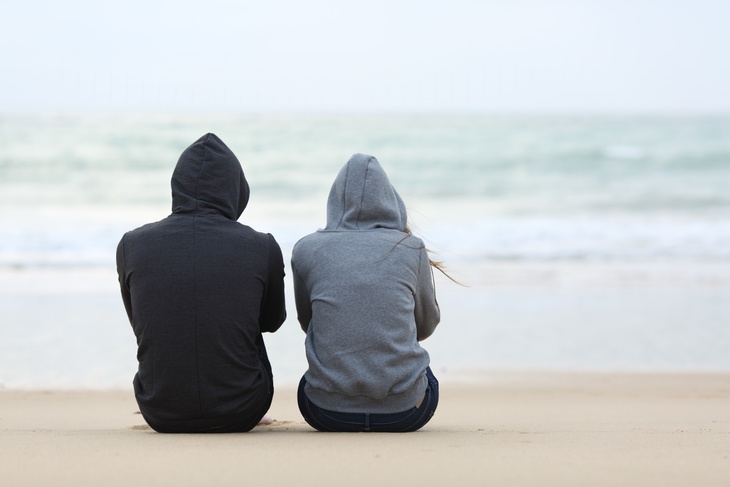PJ’s story: Smacking our kids is not our culture
Video transcript for PJ's story: Smacking our kids is not our culture
Visual:
PJ sits on his couch and speaks to the camera.
Transcript:
PJ: My grandfather's not my biological grandfather,
Visual:
Cuts to old negative reel footage of PJ being cuddled by his grandfather.
Transcript:
PJ: but um when I came along I was the only fatherless sort of grandchild at the time.
Visual:
Negative reel footage cuts to an image of PJ and his grandfather travelling together in Asia. Cuts to an image of PJ in a suit standing alongside his grandparents.
Transcript:
PJ: So he kind of said, yep you're my son practically, and that's how he treated me.
Visual:
Negative reel footage cuts to the modern day, with PJ sitting next to his grandfather and PJ’s son sits with them. Camera cuts back to PJ on the couch.
Transcript:
PJ: He taught me everything, from what your father's supposed to do, you know.
Visual:
Cuts back to negative reel, with image of PJ’s wife and children in Pasifika clothing.
Transcript:
PJ: So what your father's supposed to do and what your father's supposed to teach you,
Visual:
Negative reel cuts to an image of their family a little older, posing for a photo. Cuts to a close-up of PJ as a child in a school photo
Transcript:
PJ: um, he's the person that taught me that this work is important because…
Visual:
Negative reel cuts to an image of PJ and his grandparents in Asia, cuts back to PJ talking to the camera on the couch.
Transcript:
PJ: you don't have to do this for your step child, you know,
Visual:
PJ bounces a basketball
Transcript:
PJ: you don't have to do this for your step grandchild yeah,
Visual:
Cuts back to PJ talking to the camera on the couch.
Transcript:
PJ: so for me I'm like all right i don't have to do this for any of these kids you know but I'll stand in the gap for them and I'll teach them something good.
Visual:
Cuts to an close-up of basketball sneakers and PJ bouncing a ball.
Transcript:
PJ: No kids should look on while other people are having fun.
Visual:
Cuts to a close-up of PJ looking into the camera. Words appear on screen, they read: “Peter Josephs. Foundation Basketball Director”.
Transcript:
PJ: My name is Peter Josephs I am a 40 year-old father of two from Auckland city, and I facilitate basketball and I work in the community.
Visual:
PJ stands in the middle of his children as they all look into the camera and smile. Cuts to PJ staring into the camera. Words appear on screen, they read: “PJ works with Le Va, who focus on health and wellbeing outcomes for Pasifika families. ACC provides funding to Le Va to help prevent violence in our communities.” Camera cuts back to PJ on the couch.
Transcript:
PJ: I think the biggest thing that sort of appeals to me...
Visual:
Cuts to the Father’s Fono at Le Va, with Pasifika men wearing traditional leis around their neck, before cutting back to PJ on the couch.
Transcript:
PJ: is violence is not our culture that is the the sort of slogan, the headline of the Father's Fono, or of Le Va, to all of it.
Visual:
Cuts back to the Father’s Fono stage, with a close-up on the Le Va logo, before cutting to shots of the Father’s in their leis.
Transcript:
PJ: So for me, the Father's Fono is a platform where I can share just views…
Visual:
Pasifika men do a traditional dance, while women walk onto the stage wearing traditional Pasifika floral headwear. Cuts to a woman speaking and Pasifika community members watching on.
Transcript:
PJ: and hopefully some of my views can resonate with some of us…
Visual:
Cuts to a young Pasifika boy playing a guitar and singing into a microphone.
Transcript:
PJ: and help fathers who might be having a problem.
Visual:
Cuts back to PJ sitting on the couch talking to the camera.
Transcript:
PJ: So that's where I sit and why I sit with Le Va, but Le Va do do some wonderful work for our people.
Visual:
Cuts to a close-up of basketballs in a storage cage, then cuts to PJ blowing a whistle.
Transcript:
PJ: Basketball is my life, that's what I do.
Visual:
Camera shows a ball going into a hoop, before cutting to PJ coaching young people.
Transcript:
PJ: Growing up that's what kept me away from everything.
Visual:
Cuts to a woman watching PJ coach, before cutting back to PJ coaching at the basketball court.
Transcript:
PJ: I grew up in south Auckland, I grew up in Otara, so very it's an impoverished area.
Visual:
Cuts back to PJ sitting on the couch talking to the camera.
Transcript:
PJ: For me I got to see a lot of different parts of life that maybe a lot of kids don't get to see but...
Visual:
Camera cuts to footage of cultural Pasifika items around PJs home.
Transcript:
PJ:...my memories of childhood was fun.
Visual:
Cuts to polaroids of PJ’s family pegged to a rope, before showing other photos and cultural items around his house.
Transcript:
PJ: You kind of don't know any different, you know, so I grew up amongst a lot of trauma, I grew up a lot amongst a lot of violence and things like that.
Visual:
Camera cuts to a lei hanging on the wall, before cutting to his family eating and making sandwiches in the kitchen.
Transcript:
PJ: Not specifically in my household, so I've tried to keep that away from my child.
Visual:
Close-up on PJ’s daughter spreading jam on her sandwich before wrapping it in cling film.
Transcript:
PJ: I don't smack my children, whatsoever, so I remember that was one of my first thoughts. I was like "I'm not gonna smack my kids".
Visual:
Footage covers close-ups on the kids packing their lunches into their bags for school, before cutting to his daughter using a tablet.
Transcript:
PJ: And I think that it's come through and my kids are really confident.
Visual:
Cuts back to PJ sitting on the couch talking to the camera. Camera cuts back to PJ teaching kdis on the basketball court.
Transcript:
PJ: Basketball is a great thing for anybody to learn.
Visual:
Camera gets a close-up of a basketball going into a hoop, then cuts to PJ showing kids how to dribble a ball.
Transcript:
PJ: That's my tool to sort of push out the message that I want.
Transcript:
PJ: I don't care if you build to be a basketball player, but if you become a good person…
Visual:
PJ teaches the kids different aspects of basketball, blowing his whistle and bouncing the balls with them.
Transcript:
PJ: if it helps you down the track, so for me it's not just about basketball…
Visual:
Camera cuts back to PJ bouncing a ball on a court by himself outdoors, then makes a shot.
Transcript:
PJ: …it's not about getting kids to play basketball.
Visual:
Cuts back to PJ sitting on the couch talking to the camera.
Transcript:
PJ: It's about giving them something they want to do that can help them that they might not be getting from other places.
Visual:
Screen fades to blue. Words appear on screen, they read: “Pasifika children are twice as likely to be physically punished compared to Pākehā kids. This is something ACC and Le Va want to change and we need your help.”
Words fade out, new ones appear that read: “Standing together against violence. Join us – check out Atu Mai as www.leva.co.nz
Words fade away and a white ACC logo appears.
South Auckland dad Peter Josephs works with Pasifika organisation Le Va to help other Polynesian fathers learn from his successes – and his mistakes.
Peter Josephs – known to most as PJ – wipes away a tear as he reflects on the role his grandparents played in his early life.
“My grandfather’s not my biological grandfather. I was the only fatherless grandchild at the time, so he kinda said ‘Yep, you’re my son.’”
Born to a single mother, PJ wouldn’t meet his biological father until he was 16. His grandfather, alongside his mum, was his role model.
It’s common in Pacific culture for grandparents to play a significant role in their grandchild’s lives. Often, they step into a parenting role when that role is absent from a child’s life.
“He taught me everything, from what your father is supposed to do and what he’s supposed to teach you. He’s the person who taught me that. “He didn’t have to do that for me.”
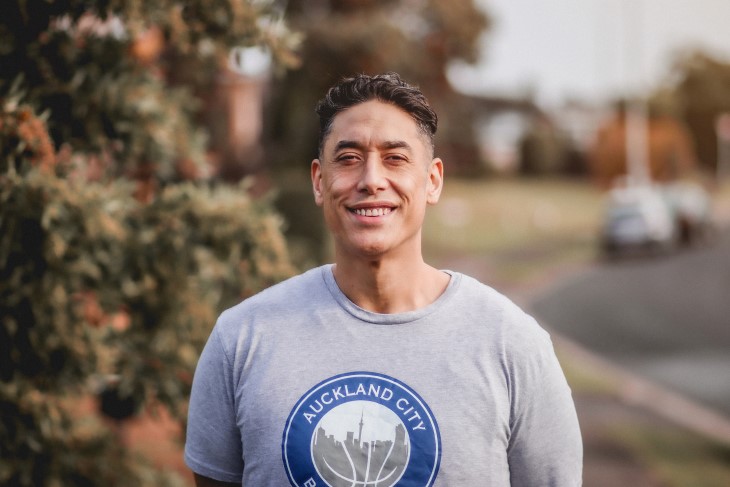
Growing up poor
At the end of a cul de sac in South Auckland, a young PJ laughs as he throws a left-side rugby pass to a friend in the middle of the street. It’s the late 1980s and in Otara, where he was raised, luxuries are few and far between.
“It’s a very poor area of Auckland, of New Zealand. But my memories of childhood were fun. But you know, you don’t really know any different.
“The area I was in specifically was a high gang area. For me, I got to see a lot of different parts of life that maybe a lot of kids don’t get to see.”
PJ grew up like many Polynesian kids in South Auckland. A close-knit local community of neighborhood friends, known better as your ’aiga (Samoan for family). Your best friend was your brother, and their parents your uncle and aunty.
But the darker side of poverty also bred its share of antisocial activity.
“I liked sport, so that kept me occupied. I feel if I wasn’t occupied, I'd be with the other ones who weren’t.”
It was basketball that would save PJ’s life and give him the direction and purpose he needed.
Not a ‘real’ Samoan
PJ has a baller's build. Today he stands at almost 2 metres tall, and he sprouted early.
“Back then, just being tall was a problem. A lot of people gave me problems, little negative remarks. I found myself to be in a weird space.”
PJ also has a multi-ethnic makeup: a Samoan mother, and birth father a mix of Tongan, Fijian, English and Scottish.
“Identity-wise it was kind of tough. To the Samoans, I'm not Samoan. To the Tongans, I'm not Tongan. To the Fijians, to the Europeans, it’s the same. Yet I'm all of those. Coming up, it was tough.
“I did feel a little bit like an alien.” But despite these challenges, PJ built strong relationships with those around him, just as his grandparents had taught him.
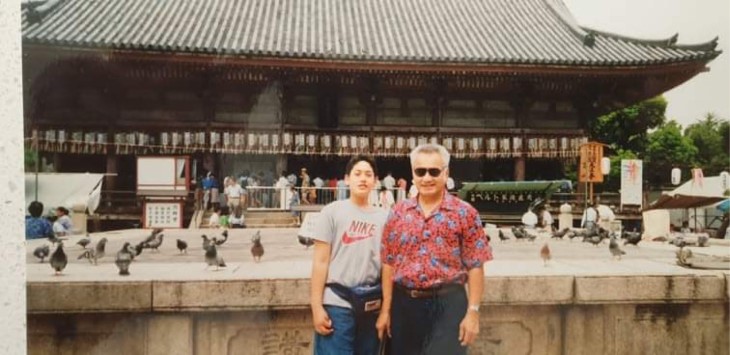
PJ with his grandfather
Lessons from the elders
PJ reflects gratefully on the influence of his grandmother. “My grandmother was crazy, actually,” he chuckles. “She was Samoan and was all about Samoa. Through that, she always wanted to just help people.”
He recounts a story where she drove the two of them home from the airport and happened across a Chinese couple on the side of the road.
“They looked confused, like they didn’t know where they were going. She stopped the car, we picked them up. And they stayed at her house for the next four months.
“This was 25 years ago, and now they own their own acupuncture business in Auckland city. They still remember my grandparents to this day.
“My grandparents didn’t even know them from a bar of soap. She just goes, ‘They need help, let’s go.’”
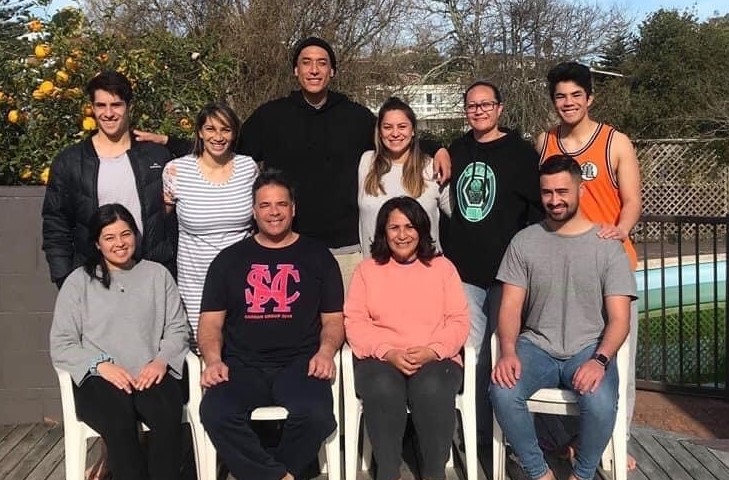
Violence is not our culture
“I can see my grandmother in her,” PJ says as he reflects proudly on his daughter, Videl. PJ’s children – Harlyn, 13 and a huge Pokémon fan, and Videlle, 9 and a keen roller-skater – keep him busy.
“Growing up, I got hidings like everybody else. Not as bad as others around me. But I've tried to keep that away from my children.
“I don’t smack my children whatsoever. I remember that one of my first thoughts [as a dad] is that 'I'm not gonna smack my kids’.”
When reflecting on modern Pasifika parenting, PJ says things don’t have to stay the same. “We’ve got to really look at our culture as parents and ask, what was right?
“With the physical discipline in our culture; that’s wrong to me.”
This drives PJ’s connection to Le Va, a Pasifika organisation focused on holistic wellbeing.
Igniting communities, creating change
Auckland-based organisation Le Va focuses on health and wellbeing outcomes for Pasifika families.
The Father’s Fono, funded by ACC and led by community figures like PJ, helps Pasifika fathers know their value and raise thriving families. It focuses on helping to build healthy consensual relationships.
“The biggest thing that appeals to me is ‘violence is not our culture.’ That's the headline of the Father’s Fono. That’s what I believe to be true.”
The word ‘fono’ is shared by many Polynesian languages. It translates generally to describe meetings of all kinds, from national assemblies to face-to-face. Father’s Fono is about meaningfully connecting fathers to their children, and men to their partners.
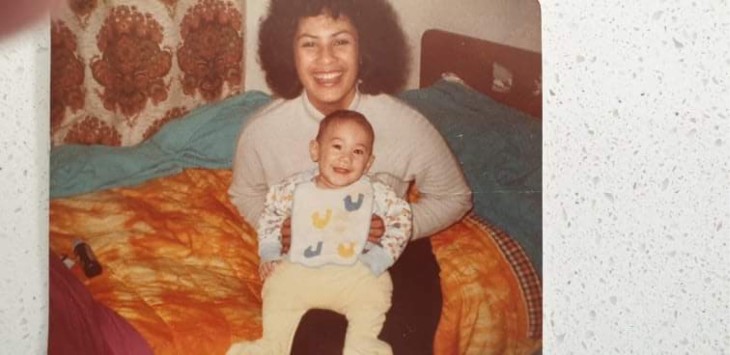
PJ is one of a handful of fathers contributing their thoughts on Pasifika parenting. “Somebody who might need it can find information and knowledge, that can help them as a father.”
Pasifika children are twice as likely to be physically punished than other kids. ACC provides funding to Le Va to encourage healthy and positive relationships, and to stand against violence. Find more information about Le Va and the Father’s Fono on their website.
Lessons on the court of life
PJ also uses his love for basketball as a tool for wider societal change.
“Basketball for me is not about winning games, it’s not about going to dunk on somebody or the things that are happening on court. It’s about what it did for me outside.”
Foundation Basketball, run by PJ and his partner Krissy, provides basketball coaching and training for a diverse range of communities.
“I have special needs classes, I have classes for autistic children, I have classes for ADHD children, I have programmes for kids who can’t make friends."
“I have classes for dads who are having issues teaching their sons or having relationship issues with their children. So I teach them basketball to teach their children so that they can create a bond where they’re actually being the teacher. "
“That’s my tool to push out the message. It’s my grandparents’ work.”
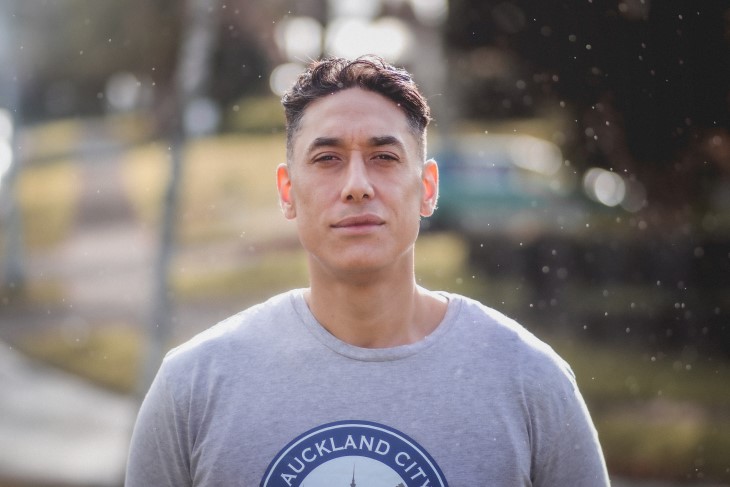
No kid should have to look on
“My grandfather... he didn’t have to look after me, his step grandchild. So for me, I’m like, right, I don’t have to do this for any of these kids but I'll stand in the gap for them and I'll teach them something – that is the lesson he’s given me.”
And with that tear in his eye, PJ imparts the key lesson his grandfather taught him.
“Out in South Auckland, I do free basketball and that concept comes from that idea. Kids in South Auckland shouldn’t have to look on to all these people who are doing well, and that they could play just as good as, probably better.”
“A lot of the kids that come out of there are really talented. But they don’t have the opportunity. They look on. But no more.”
“No kid should have to look on while other people are having fun.”
ACC and Le Va
Fa’afetai lava (‘thank you’ in Samoan) to Peter Josephs for sharing his story with us.
The Father’s Fono by Le Va aims to ensure Pasifika men know their value as Pasifika fathers, to enable them to raise thriving and flourishing families and have healthy, consensual relationships.
ACC provides funding to Le Va to help prevent violence in our communities. For more information, head to Le Va’s website or ACC.co.nz.
Over the next 4 years, we are investing $44 million to establish a sexual violence prevention system. Read more about this investment in the story below.



